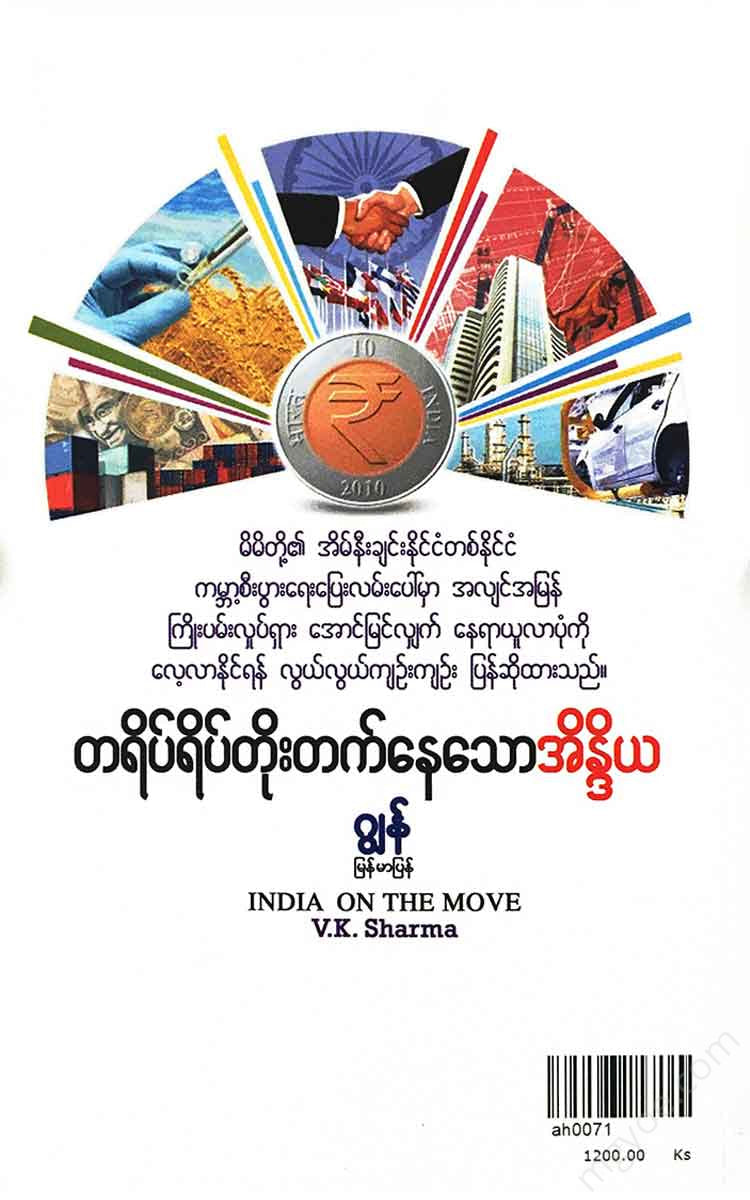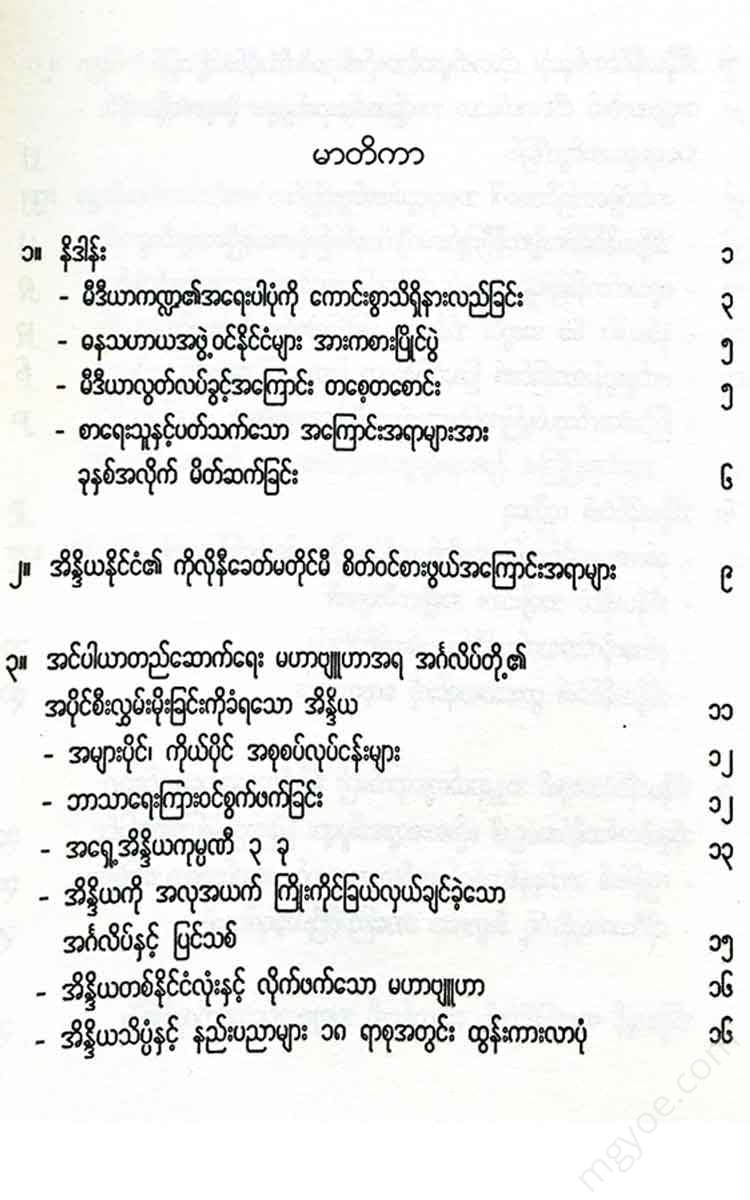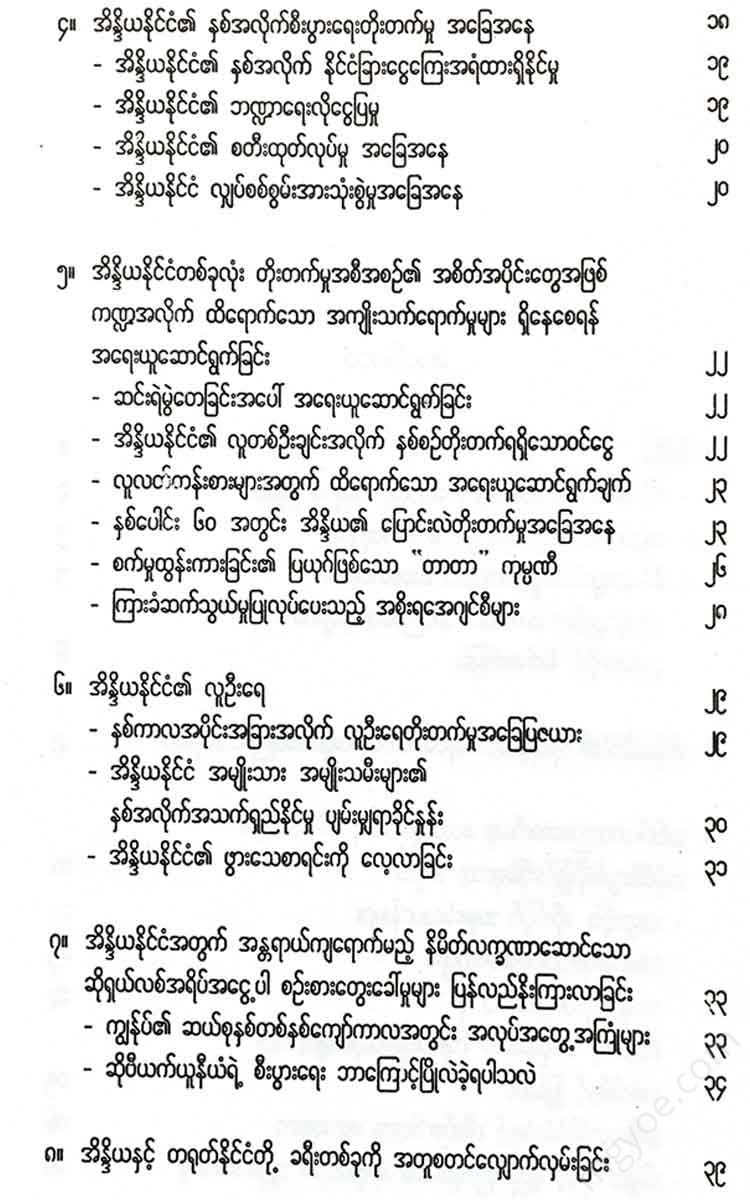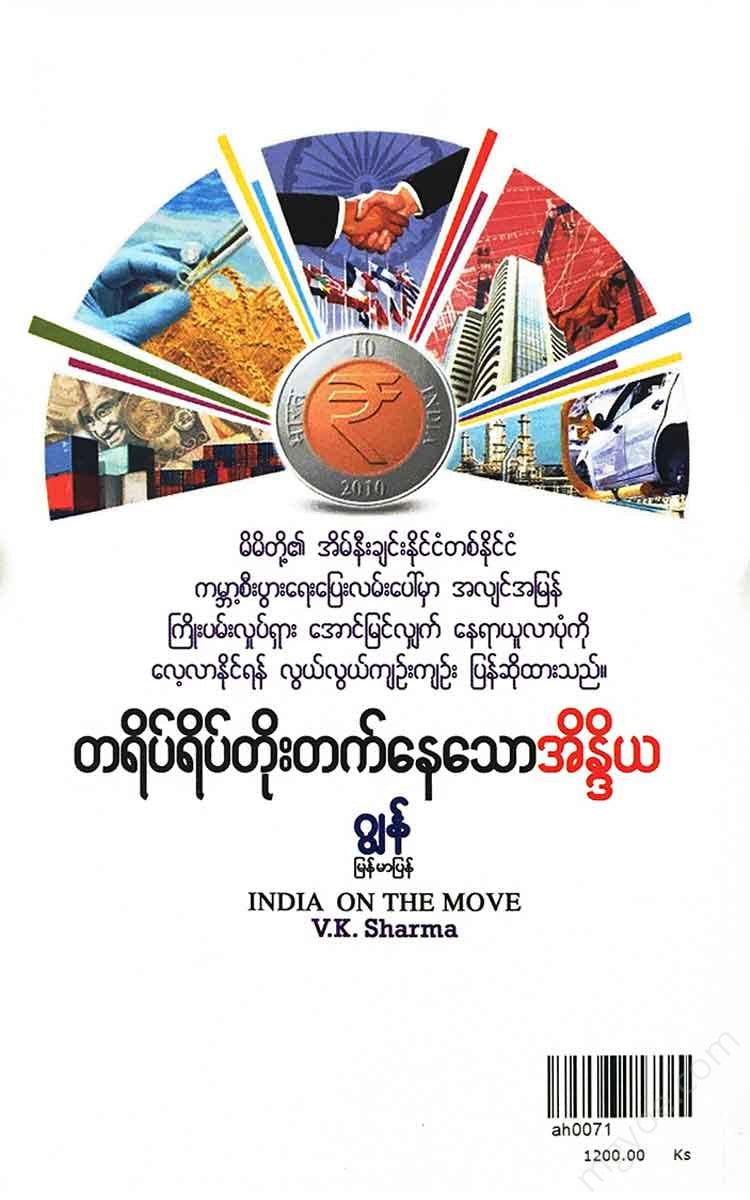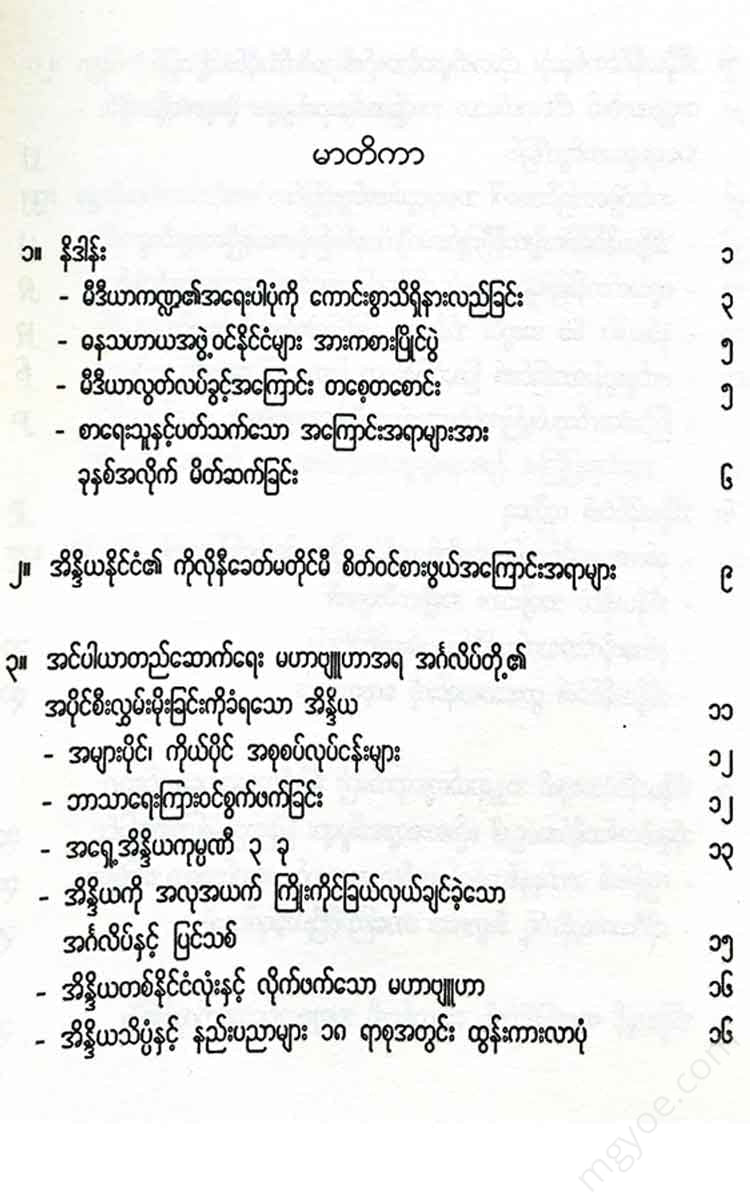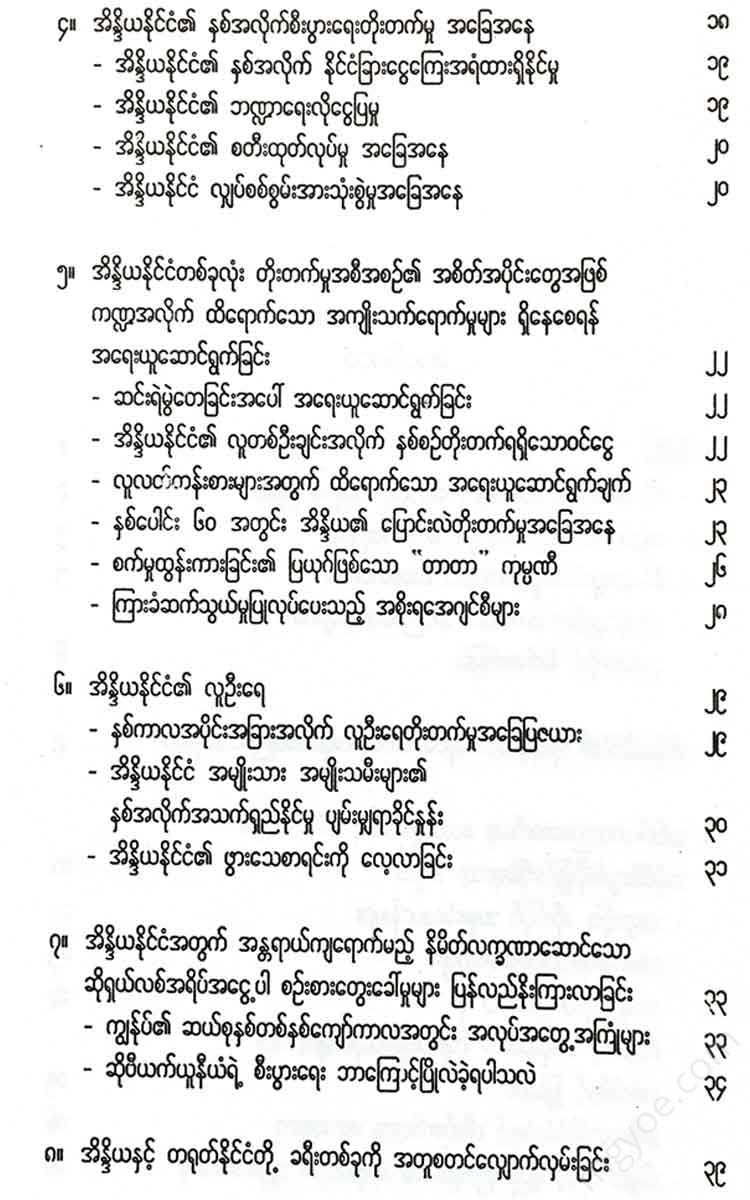စိတ်ကူးချိုချိုစာပေ
John - India is growing rapidly
John - India is growing rapidly
Couldn't load pickup availability
- Introduction -
In November 2009, a well-known writer and retired business executive named “Shrigarh Charan Das” gave the following positive presentation with his independent views on India.
"India is currently the fourth largest economy in the world...
Of the Fortune 500 companies, 125 are currently based in India. Of the Fortune 500 companies, 390 are outsourcing their software development efforts to India.
The non-performing loan rate for Indian banks is only 2%, while for China it is as high as 20%.
Poverty fell from 46% in 1980 to 26% in 2000. It is expected to fall to 16% by 2010.
India is a country that has been able to practice democracy since before capitalism.
India has since seen dramatic changes over the years. By 2020, the middle class in the “West” of India could reach 50%, and by 2040, the “East” could reach 50%.
"We have been waiting and trying for this situation for India for the past 3,000 years."
Mr. Das pointed out charts and graphs of India's progress in all aspects, explaining how we have overcome obstacles to finally reach this level of prosperity so that all of our people can enjoy the wealth of India.
Previously, India's government schools had only one teacher instead of four, and health centers had only two doctors instead of five, which led to a significant drop in education and health. Other needs were present in almost every sector. Such inadequacies have become challenges, and despite various sacrifices and struggles, the desire to improve has made all Indians mature.
Once upon a time, India was oppressed by various sides due to various weaknesses, but today, modern history has witnessed the beginnings of change and progress. So, today, we can have hope in every step of India to move forward with gradual progress.
As a result of the 20 years of capitalism in India, Indian society has developed rapidly. | There are four interrelated components that have transformed India.
These are: - India's progress from its original state - India's social progress - India's judicial progress - India's media progress.
The development of the above-mentioned interrelated components has been a continuous effort until it reached its current level.
India, which is developing in every way, has completely transformed its capital, New Delhi.
Today, New Delhi is a beautiful city with better roads, brighter streetlights, and modernized urban infrastructure, including escalators, trams, new river bridges, and modern buses.
Good understanding of the importance of the media sector
India understands very well that the small needs of the media sector can lead to huge losses in a case. I would like to reiterate the charge made by Mr. Al Gore regarding the important role of the media sector.
“The entire Senate was silent on the eve of the Iraq war. The reason is clear. The media did not support the vote on the war.” The role of the media is essential for any country. However, the media can bring about various benefits as well as negative effects. India has achieved progress only because it has managed to navigate the good and bad sides of the media.
Since 1991, India has opened up a new era of media freedom.
At this time, the news media industry is dominated by politicians, businessmen, advertisers, famous actors, and celebrities.
It has become a practical tool for celebrities and the stock market. However, while the news media industry spends its time interviewing famous artists and writers, it has left no room for the role of ordinary people and readers. Thus, the media world has become a profit-oriented one, favoring the strong without being fair.
Nobel laureate Shri Amar Yasin expressed her opinion on this situation in a television interview on May 6, 2013.
She said that the media world currently has a wide range of roles for the elite and the famous, while the rights of the people, who represent the people, to criticize and express themselves freely, are still narrow. In fact, we need to realize that progress always comes with its own set of negative consequences, and move towards a path of flawless progress.
Commonwealth Games
October 3, 2010 was the happiest day of my life. That was the day our metro started running. The metro will run from Faridabad to JLN Stadium.
The JLN Stadium has been impressively renovated. Security and guidance have been arranged to assist the public attending the games. | The stadium was packed with about 75,000 spectators.
The opening ceremony will be opened with a performance by the country's magnificent orchestra. At that time, India was preparing to host the Olympics. However, during that time, all aspects of India's media industry were weak.
A glimpse into media freedom
The Indian government has drafted a bill to control the media after a video of commandos descending from a helicopter onto a building in Mumbai was deemed to be a threat to terrorists. However, Dr. Manmohan Singh vetoed the bill. In fact, it was due to the media's laxity and ethics. Although there is no denying the gradual change in India, the freedom of the media has not only brought benefits but also negative consequences.
Introducing topics about the author by year,
1942 > I was in the Scouts when we were camping in a makeshift tent on a large green lawn in the “Chamber” area. At that moment, I turned around because of a sound. I saw our Scout leader shouting at me. “Salachar.. go, why are you standing there?”
I ran to the place the leader told me to go before he could finish speaking.
I was going to listen to Maharaja Laxman Singh's annual speech.
In 1943, the boys and girls in our group, clapping their hands together, marched smartly to the military marching band's marching music.
Soon our group passed under the gate of the city of “Chamber” and headed towards a place with steep hills, before disappearing from view.
1945 > One evening, we all went to see the electric bulbs lit in the shape of a V in the open space in front of the Maharaja's palace . The V stands for Victory in English.
The next morning we all sat in rows with the others. Directly in front of where we were sitting was a large, gleaming bronze cannon. The Maharaja's troops soon inspected the guard of honour. It turned out that the Maharaja was the representative of the Governor-General and that the cannon was a gift to the Maharaja.
1954) When I was at the "Punjab Engineering College", a student of African descent was studying with us. He was a good speaker, a good person, a good student.
Some members of our group called the African student a Negro. My friends, including myself, tried to stop calling him that. But he didn't listen.
That's why I felt so sorry for that student.
1957 > While our group was staying in a Russian-owned dormitory, one evening I was talking to a turbine engineer. The turbine engineer was Russian and spoke in his native language. I noticed that many Russian words were similar to many Hindi words.
1960 > We were all sitting on the deck of the "Panorama" ocean liner, sailing from London to Bombay . At that moment, an Egyptian friend asked with a surprised expression:
"Why do Indian women cover their backs and wear saris on top? This is not possible in all honesty," my English friend replied.
“This is clear, my friend... Since there are so few seamstresses in your country, women don't sew saris anymore and just wear them like that. Isn't that right?”
These little words made me remember my friends.
1977 » On a Sunday afternoon in 1977, two of our friends arrived at the bungalow where the Deputy Commissioner lived. At that time, there was a dispute between the factory owner and the workers over bonuses.
1989 > Agreement signed on training of workers.
2011 > I asked a local guide in Tamil why there were so many women in their 50s at adult literacy centers. The guide replied:
"I was like them before. Now I can write and speak about where to take the bus."

